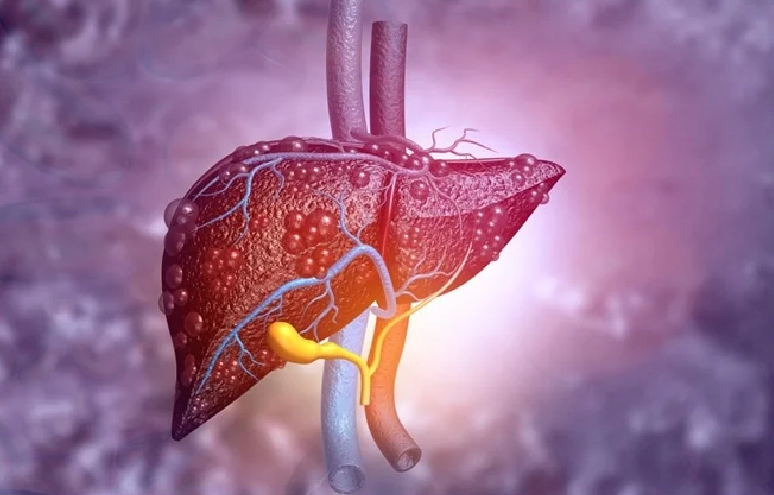Liver Diseases Treatment in Pune and PCMC - Dr. Sharan Narute

Liver Diseases
Your liver plays a vital role in keeping you healthy. It converts nutrients into essential chemicals your body needs, filters out toxins, and helps turn food into energy. When your liver isn’t functioning properly, it can impact your entire body’s health and well-being. If you’re experiencing liver-related symptoms, it’s important to consult a Liver Specialist in Pune for timely diagnosis and expert care.
There are many kinds of liver diseases:
The liver is a vital organ responsible for detoxification, protein synthesis, digestion, and many other essential functions. When the liver becomes diseased or damaged, it can affect the entire body. There are many types of liver diseases, each with its own causes, symptoms, and treatment approaches. Understanding these conditions can help in early diagnosis, effective management, and better outcomes.
1. Fatty Liver Disease
Fatty liver occurs when excess fat builds up in the liver cells. It is commonly linked to obesity, high cholesterol, diabetes, and excessive alcohol intake. In the early stages, it may not cause noticeable symptoms, but over time, it can lead to inflammation and scarring. If left untreated, it may progress to liver cirrhosis or failure. Lifestyle changes like weight loss and a healthy diet are essential for management.
2. Non-Alcoholic Fatty Liver Disease (NAFLD)
NAFLD refers to fat accumulation in the liver not caused by alcohol. It is associated with metabolic syndrome, insulin resistance, and obesity. This condition ranges from simple fat buildup to non-alcoholic steatohepatitis (NASH), which includes inflammation and liver cell damage. NAFLD is becoming increasingly common, even in children. Early detection and lifestyle changes can prevent progression to more severe liver disease.
3. Non-Alcoholic Steatohepatitis (NASH)
NASH is a more severe form of NAFLD, characterized by liver inflammation, cell damage, and fat accumulation. It increases the risk of liver fibrosis, cirrhosis, and liver cancer. Often called a “silent” disease, NASH may not show symptoms until the damage is significant. Risk factors include obesity, diabetes, and high cholesterol. Managing weight, controlling blood sugar, and avoiding processed foods are key to slowing progression.
4. Liver Cirrhosis
Cirrhosis is the advanced scarring of liver tissue due to long-term liver damage from conditions like hepatitis, alcohol abuse, or NASH. As healthy tissue is replaced by scar tissue, the liver’s ability to function is reduced. Symptoms include fatigue, swelling, easy bruising, jaundice, and confusion. Cirrhosis is irreversible, but further damage can be slowed with proper treatment. In severe cases, a liver transplant may be necessary.
5. Jaundice
Jaundice is not a disease but a symptom of underlying liver dysfunction. It occurs when the liver fails to properly process and excrete bilirubin, leading to yellowing of the skin and eyes. Causes can include hepatitis, liver obstruction, or cirrhosis. Other symptoms may include dark urine, pale stools, and fatigue. Treating the underlying cause of jaundice is essential for recovery.
6. Alcoholic Hepatitis
This is inflammation of the liver caused by excessive alcohol consumption over time. It can range from mild to life-threatening and may lead to cirrhosis or liver failure. Common symptoms include abdominal pain, fever, nausea, and jaundice. Quitting alcohol immediately is the most critical step in treatment. Medical support and nutritional therapy also play important roles in recovery.
7. Liver Cancer (Hepatocellular Carcinoma)
Liver cancer often develops in people with chronic liver diseases, such as cirrhosis or hepatitis B/C. Hepatocellular carcinoma is the most common type of primary liver cancer. Early stages may not show symptoms, but as it progresses, patients may experience weight loss, abdominal swelling, and jaundice. Treatment depends on the stage and may include surgery, liver transplant, radiation, or targeted therapy. Regular screening is vital for high-risk individuals.
8. Liver Failure
Liver failure occurs when the liver loses its ability to function properly. It can be acute (sudden) or chronic (gradual). Causes include hepatitis, drug overdose (like paracetamol), or cirrhosis. Symptoms may include confusion, bleeding, jaundice, and fluid retention. Liver failure is a medical emergency requiring immediate treatment. In advanced cases, a liver transplant is the only life-saving option.
